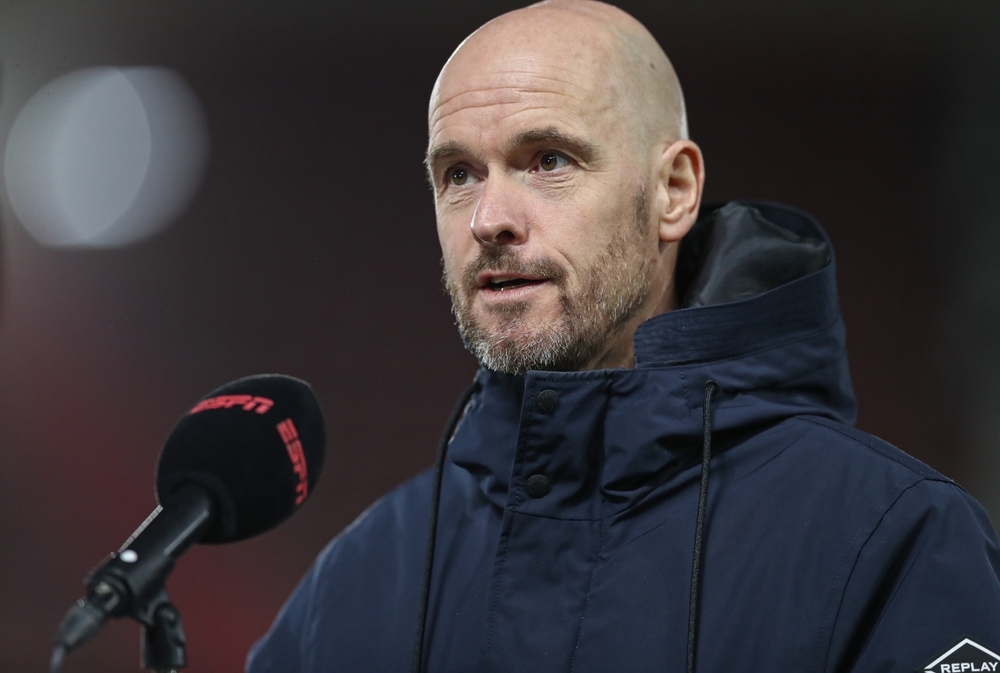The axe has finally fallen. Erik ten Hag, the experienced tactician brought in to revive Manchester United’s competitive edge, has been shown the door— another casualty of Old Trafford’s high-stakes expectations and relentless pressure for immediate success. But was ten Hag truly at fault, or has United’s legendary legacy itself become the club’s greatest hurdle?
A Visionary Leader with a Plan
Erik ten Hag arrived from Ajax with a reputation for discipline and high-intensity football, accompanied by a clear vision to modernise United’s game. From the outset, he focused on instilling organisational rigour, player accountability, and a proactive approach to training. His leadership approach was rooted in structure and a long-term mindset aimed at developing a cohesive, disciplined squad.
But even for leaders with proven systems, transitioning to a new environment poses challenges. Ten Hag’s highly disciplined approach met resistance at United, as he attempted to replace a fractured, inherited culture with one of unity and collective responsibility.
Managing Relations and Leading Through Challenges
One of ten Hag’s defining characteristics was his no-nonsense leadership style, which set the tone for his approach to player discipline and team cohesion. From the start, he set expectations for accountability, even if that meant sidelining high-profile figures. His decision to bench Cristiano Ronaldo—a global icon and fan favourite—served as a message, symbolising his commitment to the team’s principles over individual reputations. This stance, while admirable, created friction within the dressing room, with senior players reportedly questioning his methods.
Additionally, his public criticism of Jadon Sancho reflected a broader issue: instilling team-first mentality in a squad long accustomed to individualism. Leading such a squad required an extraordinary level of emotional intelligence and adaptability, which proved difficult as resistance to his strict structure grew.
Tactical Vision in an Unforgiving Environment
Ten Hag’s tactical blueprint—high pressing and fluid positional play—had proven effective in the Netherlands, yet required a collective discipline that was difficult to embed in an established, multifaceted Premier League side. United’s squad, assembled by previous managers with contrasting visions, lacked the unified identity required to seamlessly adopt ten Hag’s model. His tactical system exposed gaps in the squad, which opposition teams quickly exploited, leaving United defensively vulnerable.
In such a demanding league, adapting and executing tactical philosophy relies on shared vision and commitment, but the reality at United highlighted a discrepancy between ten Hag’s structured methods and the squad’s readiness to adopt them.
Strained Resources and an Unmet Vision
For any leader, building the right team is essential, and ten Hag faced additional obstacles in this area. While initial backing brought in familiar faces like Antony and Lisandro Martínez, the support waned before he could complete a full transformation. As a leader, ten Hag was thus left managing a blend of players suited to varying approaches, rather than the cohesive unit his style required.
The transfer market limitations prevented ten Hag from executing his vision fully. The lack of structural support meant he could only do so much, a frustration common to leaders whose ambitions outpace their resources.
The Weight of Legacy: Managing Expectations at Manchester United
Manchester United’s storied history adds another dimension to its managerial challenges. Fans hold enduring expectations rooted in the Busby and Ferguson eras, both of which embodied attacking play and repeated success. Every manager stepping into Old Trafford’s dugout must balance their vision with the pressure of meeting these ingrained standards—a task that can overshadow even the best leadership strategies.
For ten Hag, his emphasis on long-term results clashed with the demand for immediate success. In a culture fuelled by expectations of instant glory, the patience he required to build something sustainable was a scarce resource, especially as United’s Champions League aspirations were slipping away.
Reflecting on Leadership: Was Ten Hag’s Sacking Inevitable?
Ultimately, ten Hag’s tenure at United underscores deeper systemic issues that no manager alone can resolve. His strategic acumen and strong sense of discipline were commendable, but in a high-pressure environment resistant to change, they were not enough. Frequent managerial turnover points to structural dysfunction within the club—an environment that, without internal transformation, limits any leader’s capacity to bring about lasting success.
What’s Next for Manchester United?
As United seeks a new manager, the club’s leadership faces an opportunity for reflection. It is no longer simply a matter of finding the “right manager,” but about cultivating a cohesive, long-term vision that aligns with the club’s historical legacy while acknowledging today’s realities. Ten Hag’s brief tenure serves as a reminder that without foundational support and alignment, even the most skilled leaders will find their ambitions cut short.
United’s legacy looms large, but unless they break the cycle and commit to real, lasting change, the Theatre of Dreams may remain a stage where even the best struggle to thrive.











